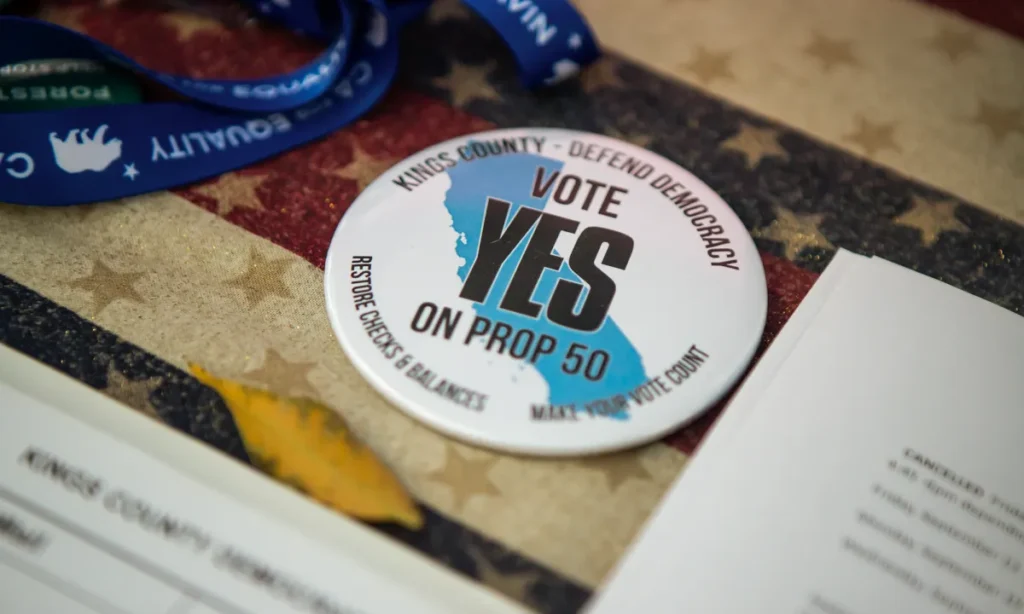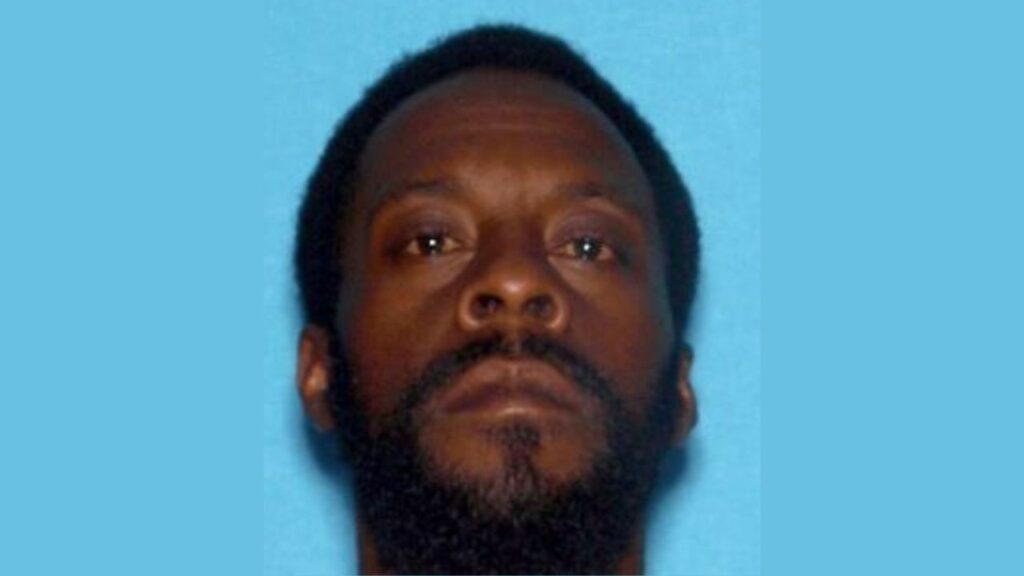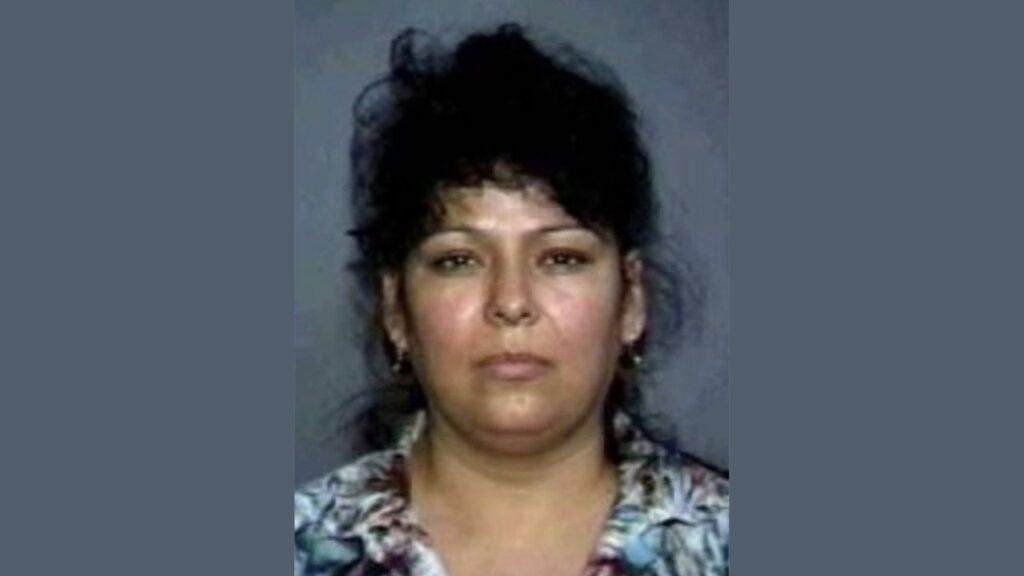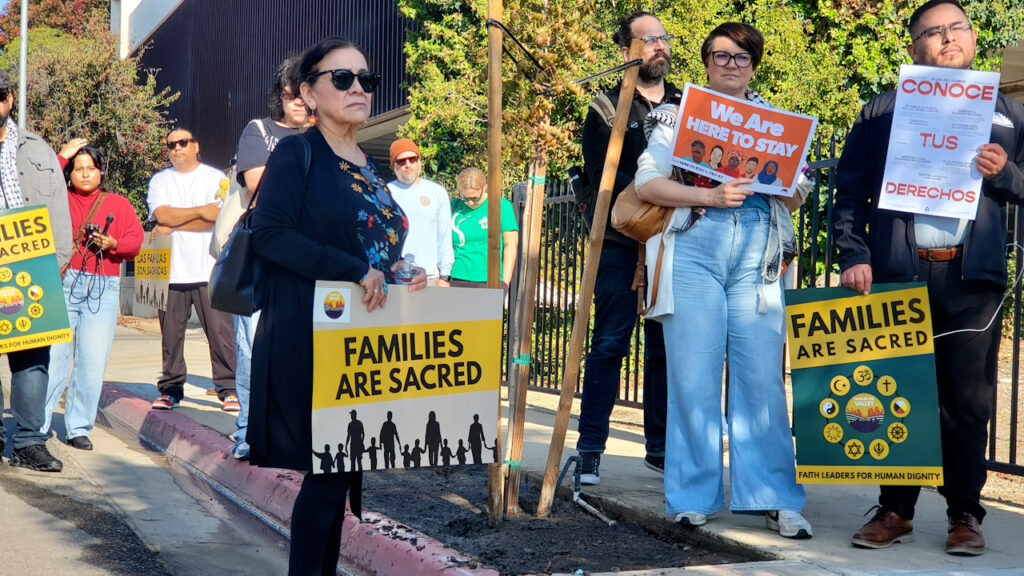UC navigates Trump's scrutiny, fighting research cuts while treading carefully on diversity and student protests. (CalMatters/Ariana Drehsler)

- UC joins lawsuits to block Trump's cuts to NIH funding, which could cost campuses over $100 million each.
- The university takes a more muted approach on diversity and inclusion issues to avoid federal scrutiny.
- Student leaders urge UC to take a stronger stand in defending academic freedom and student protests.
Share
This story was originally published by CalMatters. Sign up for their newsletters.
The University of California is threading a delicate needle as it navigates the Trump administration’s intensifying scrutiny of how universities operate.
On one front, the UC is fighting President Donald Trump’s proposed cuts to campus research funding by joining lawsuits against the administration. On other matters, the university has taken a more muted approach, posting online missives in support of diversity and students in the country without legal authorization, but seemingly unwilling to rankle a White House that is targeting campus policies and practices.
Trump’s second stint in office may emerge as UC’s greatest challenge to how it operates, echoing the system’s battles in the 1960s with then-Gov. Ronald Reagan. He sought to rein in UC’s state funding and criticized the system for being too lax with students protesting the Vietnam War.
“I don’t think we’ve seen any president treat higher education as one of (his) enemies and so I think it’s pretty unprecedented,” said Pedro Noguera, a professor and dean of the school of education at the University of Southern California.
Tellingly, the system hasn’t sued the Trump administration over its executive actions on immigration, transgender identity and efforts to curb diversity, equity and inclusion programming at campuses.
“One sentiment I have heard echoed by all levels of UC and campus administration is their desire to escape the ever-watchful, punitive eyes of the federal administration,” Aditi Hariharan, president of the undergraduate student association of the UC, told UC leaders last week. “However, hiding the UC support for specific communities targeted by the federal government will actually have a chilling effect on students’ experiences at the UC.”
She continued, saying “students are scared” and that they “aren’t sure that the UC will support them from the federal government’s wrath.”
A Financial Hit
The system also is bracing for a financial blow. The Trump administration’s proposed reductions to National Institutes of Health research funding would mean losses of tens of millions to more than $100 million for individual UC campuses, according to university statements and media reports.
Last week UC President Michael Drake said the system will undergo a hiring freeze, and signalled to campuses that they should prepare for other “workforce management plans” to address budget issues.
The uncertainty isn’t limited to hiring. Incoming graduate students at UC San Diego received notices in their admissions letters informing them they may not receive their full funding as they pursue doctoral degrees. Students pursuing a Ph.D. typically don’t pay tuition and are paid to teach and conduct research.
At UC Berkeley, UC Irvine and UC San Francisco, campus spokespersons told CalMatters they’re planning no changes to graduate student funding nor cutting the number of new doctoral students they enroll. UC Davis said it’s too soon to tell. Other UC campuses didn’t respond to CalMatters’ inquiries. But some colleges outside of California have limited the number of graduate students they plan to enroll, citing Trump’s efforts to cut federal research funding.
“If we’re looking for examples of where the UC is challenging the Trump administration and other examples of where the UC is simply looking to keep its head down, what’s happening here is definitely an example of the latter.”
Ahilan Arulanantham, UCLA law professor
Government lawyers in court said the National Institutes of Health sought these changes to curb costs and bring them in line with the rates that private philanthropies permit for research.
When a judge ordered an initial halt to the research cuts in February, Elon Musk, who serves as a top advisor to Trump, posted on social media that “This judge is FORCING the CORRUPTION to CONTINUE,” in reference to the rates the government pays institutions.
A slight majority of Americans disapprove of Trump’s overall performance, dinging him on the economy and inflation, NBC news reported. Forty-seven percent of registered voters approve of Trump’s job performance while 51% disapprove. Americans held a slightly lower opinion of former President Joe Biden’s handling of the economy.
UC’s belt-tightening isn’t just a response to Trump. Gov. Gavin Newsom’s proposed budget for next year includes an 8% cut to the UC totalling $271 million annually, part of his and the Legislature’s strategy for addressing last year’s multi-billion dollar state deficit.
While they prepare for budget cuts, UC officials may also be trying to head off scrutiny of their efforts to promote diversity. In a series of decisions last week, they barred academic departments from requiring diversity statements in job applications. These are letters applicants submit that demonstrate their ability to work with students or individuals from different backgrounds. While the UC overall never required it, some academic departments did. Now applicants may voluntarily provide them.
The UC changed its policy after the Trump administration issued an executive order demanding that campuses across the country strip programs that focus on diversity and inclusion, though with shifting definitions of what those terms mean. It’s also demanding that campuses be less tolerant of campus protests, especially those against Israel and in particular its conduct in the Gaza war. Columbia University in New York, for example, agreed last week to limit where students may protest and to appoint a new administrator to oversee the Middle Eastern studies department in an effort to claw back $400 million in cancelled federal grants and contracts.
The Trump administration is investigating UC campuses, along with Harvard, Stanford and dozens of other universities, for antisemitism, though scholars disagree on whether criticism of Israel constitutes antisemitism. For the Trump White House, however, questioning Israel’s right to exist is antisemitism.
UC Lawsuits
In protecting its financial bottom line, the UC has been aggressive in fighting the White House. The system’s Office of the President has joined one lawsuit and supported another to block Trump’s efforts to cap how much money campuses receive from the federal National Institutes of Health. The UC gets more than $2 billion annually in grants from the institutes across its 10 campuses, which is used for cancer and dementia research, efforts to battle drug-resistant diseases and other medical breakthroughs that also help anchor the nation’s biomedical industry.
The Trump administration in February set a 15% cap on indirect costs — money campuses use to maintain expensive labs and equipment while also paying for administrative upkeep, support staff and utility costs. On average, the indirect cost rate for institutions is 27%.
One of the suits that UC endorsed was filed by California Attorney General Rob Bonta and 21 other state attorneys general last month. It said that the cap would “result in layoffs, suspension of clinical trials, disruption of ongoing research programs, and laboratory closures.”
A judge issued a preliminary injunction blocking the cuts on March 5.
Since the lawsuits, UC’s social media channels have run videos and posts that make the case for how vital science research and funding is for public health nationally. The UC is also sponsoring a public letter-writing campaign urging lawmakers to preserve research funding.
Still, UC’s actions haven’t spared all its researchers from losing funding. At least 10 UC researchers have seen their grants cancelled, according to a list published by the federal Health and Human Services Department, which oversees the National Institutes of Health. Nisha Acharya, a researcher at UCSF, lost her research grant on shingles. Her work seemingly fell prey to a new federal policy that no longer supports research into vaccine hesitancy, The Washington Post reported. The five-year grant was worth more than $600,000 this year alone.
Staying Quiet
But elsewhere, UC is far from the front lines.
In fact, it’s actually gone to court trying to swat down a private lawsuit that’s attempting to force the UC to hire students without federal work authorization due to their immigration status. While the UC supports the idea, its lawyers argue that doing so may expose the system to federal prosecution and possible funding cuts. The issue has been debated for more than a year, with UC leadership initially open to the practice — based on a novel but untested legal theory — but ultimately shutting it down last January. Last fall, Newsom vetoed a bill that would have required the UC to hire eligible students without federal work authorization.
“If we’re looking for examples of where the UC is challenging the Trump administration and other examples of where the UC is simply looking to keep its head down, what’s happening here is definitely an example of the latter,” said Ahilan Arulanantham, a UCLA law professor who’s one of the lawyers representing the plaintiffs in the suit against the UC.
At its most visible public forum last week, the bi-monthly meeting of the UC Board of Regents that oversees the UC system, regents chair Janet Reilly made oblique references to diversity and inclusion in her remarks about UC’s stand against the Trump administration.
“Let us advocate for resources that empower our students, champion inclusive excellence that strengthens our communities, and pursue discoveries that better our world,” she said. “And let us use our creativity to meet any obstacle that we encounter.”
“We must not only oppose the NIH cuts, but also affirm our commitment to academic freedom by supporting our students’ right to protest regardless of immigration status.”
Ryan Manriquez, president of The University of California Graduate and Professional Council
UC President Michael Drake was direct about UC’s strategy of challenging Trump when it comes to UC’s finances: “Federal research funding is an area where we have taken a particularly assertive stance, supporting legal actions, leading advocacy campaigns, and organizing a letter from researchers that now has thousands of signatures from across the country,” he said. “We are using every tool in our toolbox because this threat is existential.”
He was less specific about what the UC is doing about its “values — the fundamentals of who we are, the people we serve, and how we support them,” as he put it. In his remarks, he said he’d get to that “area of concern” in a moment, but Drake didn’t articulate a plan of attack as concrete as the lawsuits and advocacy campaigns to halt cuts to federal research funding. Instead, he noted that the UC overhauled its systemwide student protest rules after state legislators withheld $25 million in funding until the UC clarified its policies on student activism.
He also shared an anecdote of seeing an original copy of former President Lyndon Johnson’s speech to Congress after the police attacks on civil rights protesters in Selma, Alabama, 60 years ago. Drake never connected the anecdote to today’s student protests.
“I marveled at how much our imperfect union is imagined and made manifest by our own hand, by the interactions of people, just like you and me, doing our best to improve our communities, our states, our nation,” Drake said.
To be clear, the UC has reaffirmed its support for people that Trump has targeted through his executive orders in other formats. Shortly after Trump took office in January, the UC published an explainer welcoming students and detailing how UC police will limit their engagement with federal immigration enforcement officers.
After Trump’s executive order curbing diversity and inclusion programs in schools, the UC released an FAQ last month that said its “mission to ensure broad access to education and career opportunities for all individuals remains unchanged and UC will continue to have positions that support that mission.”
And in a video message last month, Drake said the UC is in the nation’s capital “advocating for the values that have sustained us and this university for more than 150 years.”
For Noguera, the USC professor, higher education’s overall response to Trump has been “timid and weak,” he said. Speaking generally, campuses “should be fighting legally, but they should also be collectively communicating to the public about what is at stake.” He means not just research innovations in science and health, but also the huge loss of economic activity to regions heavily bolstered by campus activity, from hiring to events that pack hotels.
One UC regent suggested UC should take a middle path. “We need to be firm in opposing cuts but not (be) combative,” said Jose Hernandez, a regent and former U.S. astronaut, in a text message. “Rather than criticizing the administration,” he said, the UC should “focus on how education cuts harms America’s economy, innovation and security.”
Students Want UC to ‘Take a Stand’
Student leaders also find UC’s response insufficient. Hariharan, the student government leader, told the regents last week that “students need to feel safe in their everyday life in order for them to actually even be able to engage with their academic, mental and holistic success.”
That sentiment was echoed by Ryan Manriquez, president of the University of California Graduate and Professional Council, a group which represents graduate students.
For him, cuts to campus research budgets through the National Institutes of Health directive not only strip schools of funds but limit the social, economic and racial diversity of future researchers because of the effect the funding caps would have on graduate student education.
He also implored the UC to “take a stand” on defending students’ rights to protest, citing the arrest and attempted deportation of Mahmoud Khalil, who recently earned a graduate degree at Columbia University and was among the student leaders of the protest movement against Israel in its war in Gaza.
Some Jewish students and professors used the public comment period that day to highlight their experiences with antisemitism. “I urge you all to think about Jewish students,” one student from UC Santa Barbara said, who identified herself as Leah. “Think about the on-campus protest which caused mass disruption and completely isolated Jewish students.”
The UC — particularly UCLA — was among the protest epicenters during last year’s wave of campus activism in support of Palestine. Some UC students fear that immigration enforcement agents may apprehend individuals who protested last spring. Even during last week’s regents meeting, several dozen students staged public events denouncing Israel’s military campaigns in the West Bank and Gaza and called for the UC to divest its investments tied to Israel and weapons manufacturers.
“We must not only oppose the NIH cuts, but also affirm our commitment to academic freedom by supporting our students’ right to protest regardless of immigration status,” Manriquez told the regents.
“The UC has the opportunity to stand up for academic freedom, scientific discovery and social justice,” he added. “Our graduate students, our researchers, our advocates and our future leaders in this state and country deserve nothing less.”
This article was originally published on CalMatters and was republished under the Creative Commons Attribution-NonCommercial-NoDerivatives license.




















